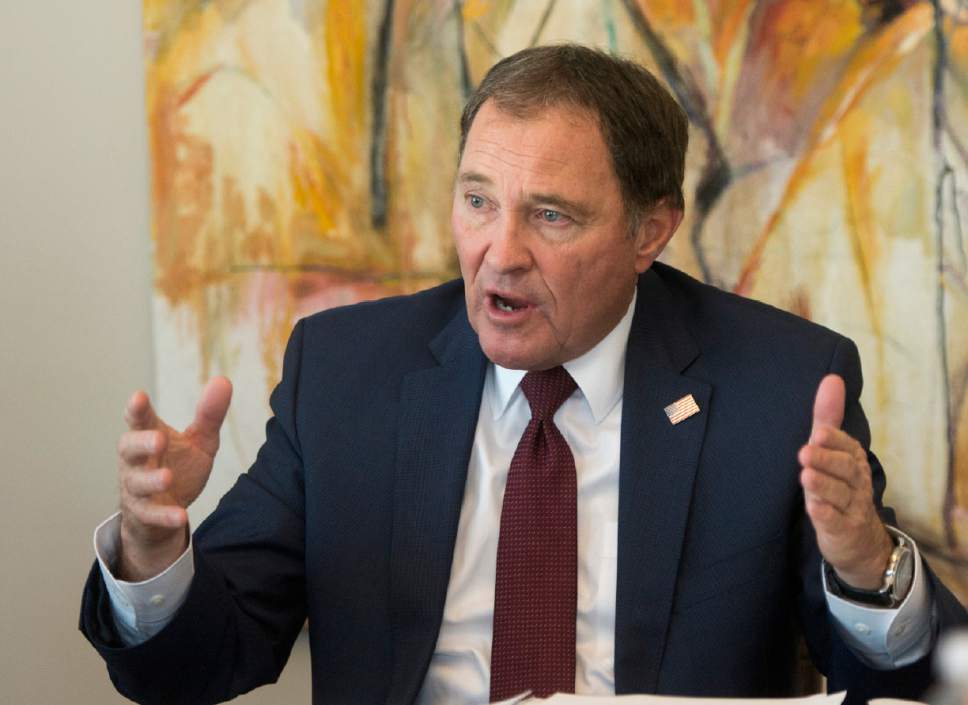This is an archived article that was published on sltrib.com in 2017, and information in the article may be outdated. It is provided only for personal research purposes and may not be reprinted.
Utah's 3rd Congressional District is about to devolve into election-law chaos. Unless cooler heads prevail. Like the governor's.
With Rep. Jason Chaffetz's resignation official (onward and upward for him), the issue of filling his seat has raised questions about how to run the election. The Legislature has threatened to sue the governor, who has, to his credit, refused to call a special session. The governor's response? Sue me.
First, it is important to remember there are two "specials" at issue here – a special session and a special election. The Legislature wants a special session in order to redefine how the special election will be administered. The governor does not. Under Utah law, the governor has the right to call a special session. The Legislature does not.
Why does the Legislature want a special session? Utah law provides that when a House seat becomes vacant, the governor "shall issue a proclamation calling an election to fill the vacancy." This framework is required by the United States Constitution. A "special election" is defined as an election "using the procedure for regular general elections."
Utah House Republicans, and Democrats for some reason, argue that such an election would take almost an entire year from start to finish. They argue the governor's plan to abbreviate statutory timetables to coincide with municipal elections would amount to an executive encroachment on legislative function.
Instead of letting the lieutenant governor proceed with the abbreviated timeline, legislators want to define more precisely what happens during a special election for a House seat. But the Legislature has not been forthcoming about what changes they would make in such a special session. Would they just legislate abbreviated timelines? Will they take signature-gathering candidates out of the process? Or will they redefine a special election summarily to mean an election by the same party as the outgoing representative, which truly isn't an election at all?
It is important to protect the separation of powers between the executive and legislative branches. And defining how an election works is a legislative function. But current law already defines how to run an election, and abbreviating that timeframe will not sacrifice the integrity of the process. As Lt. Gov. Spencer Cox said during a Friday press conference, "Our job is to run an election."
What would sacrifice the integrity of the process would be to call a special session and change the process now. Because the process has already begun. Indeed, Chaffetz announced his resignation, and the candidate declaration period opened on Friday at 1:00 p.m.
The irony, of course, is that the Republican Party sued the Legislature over passage of the SB54 Count My Vote legislation, and now the Legislature does not want to see it implemented. Its tantrum also includes a threat to pass a constitutional amendment giving it the right to call a special session.
Voters would need to approve that. Fat chance.



